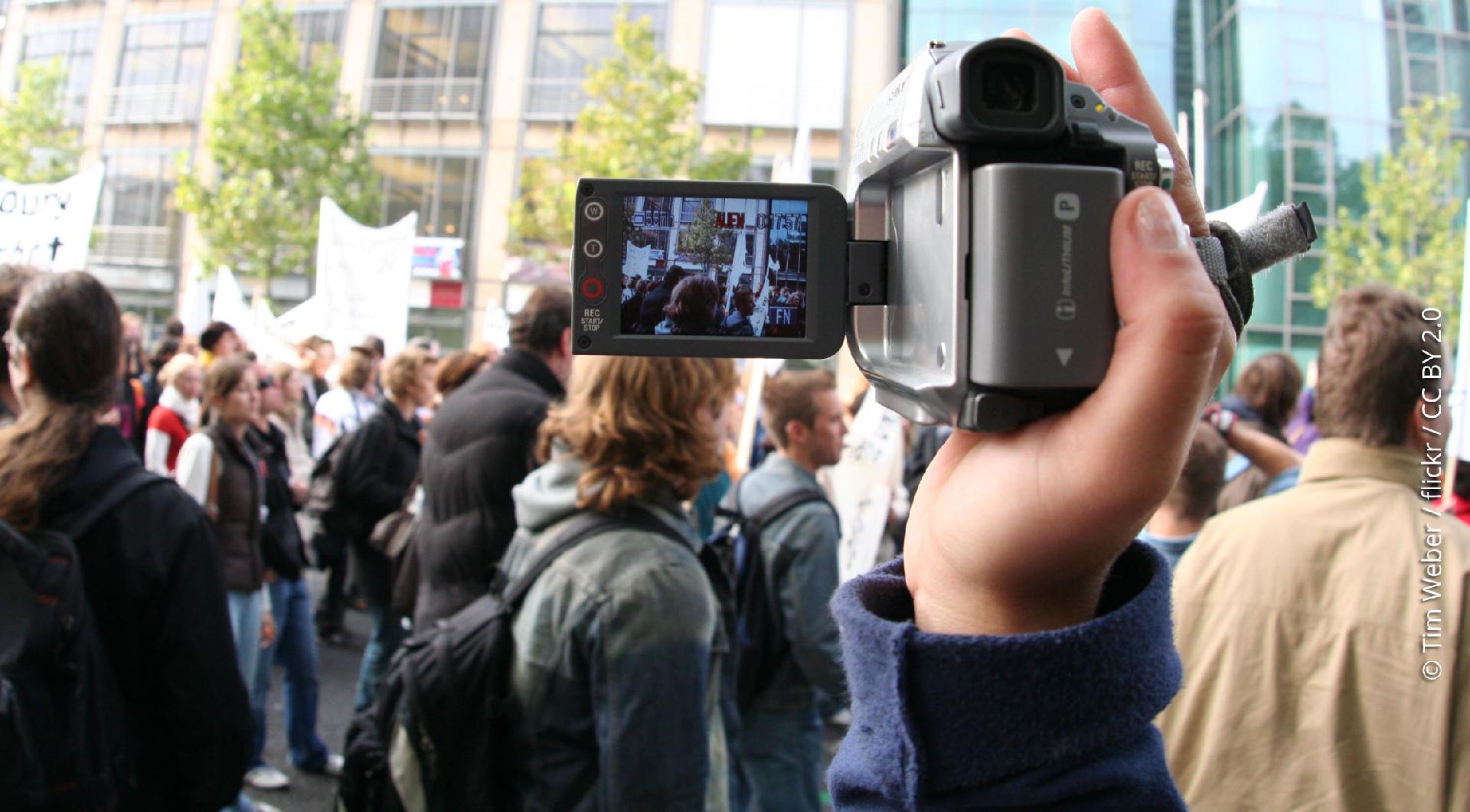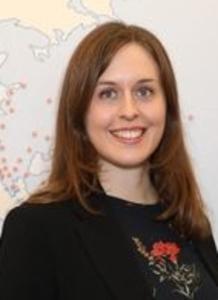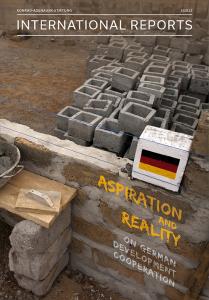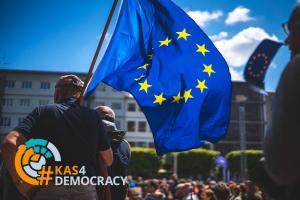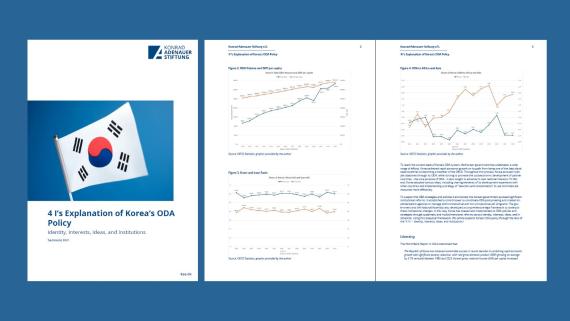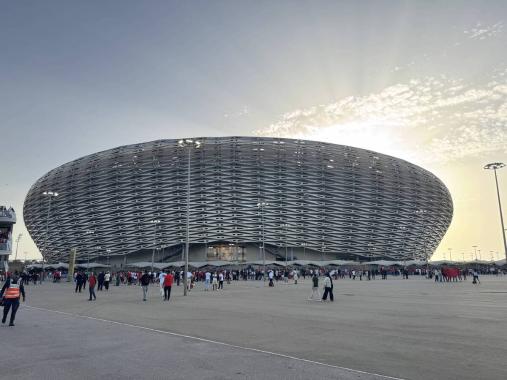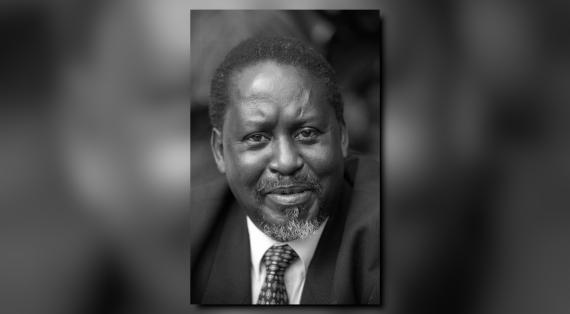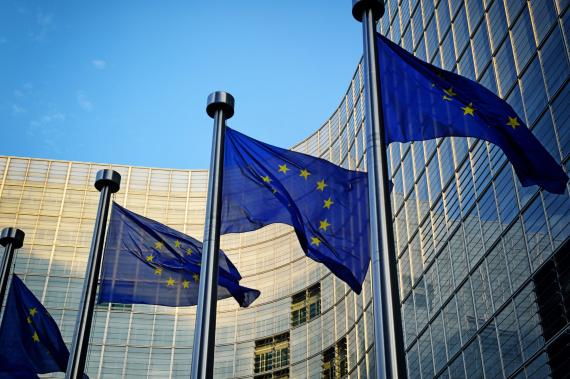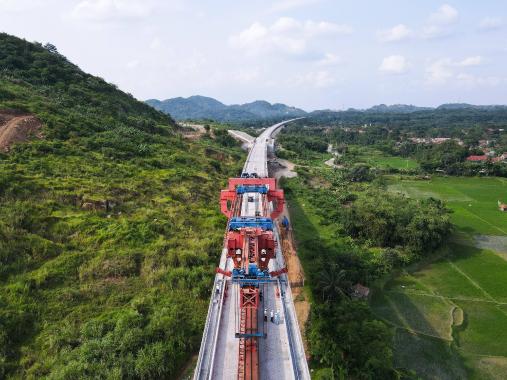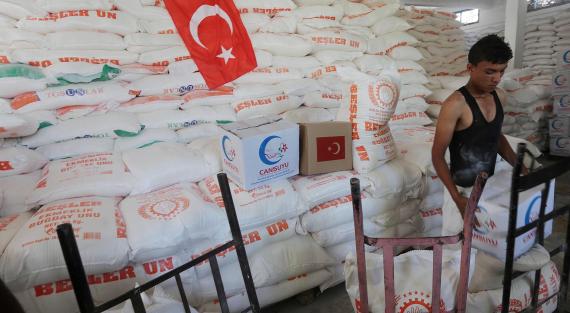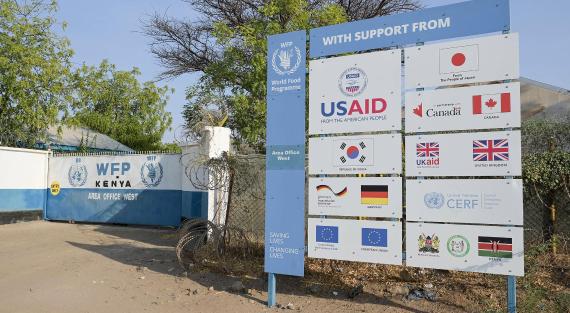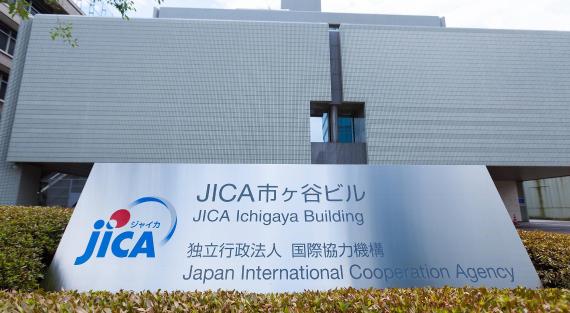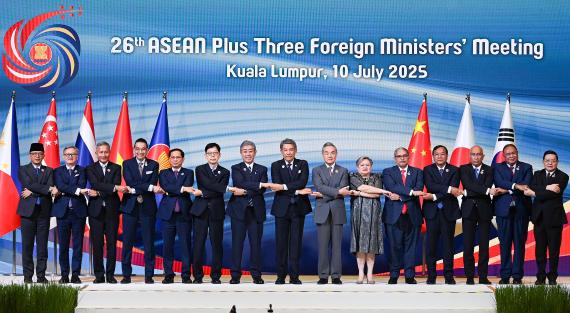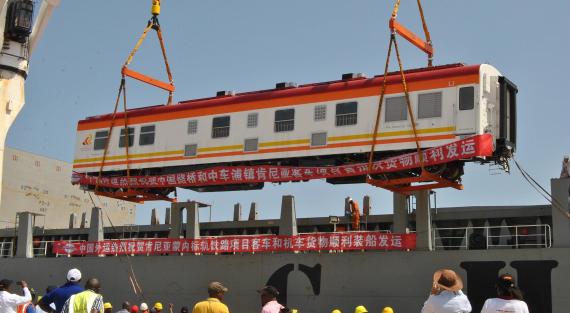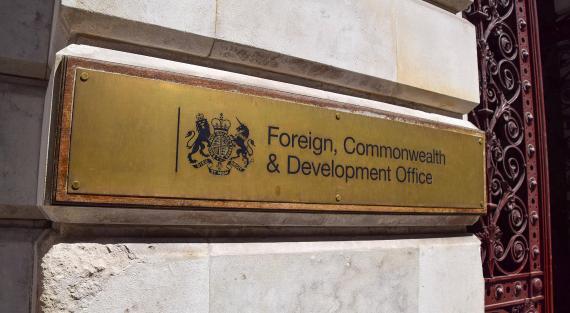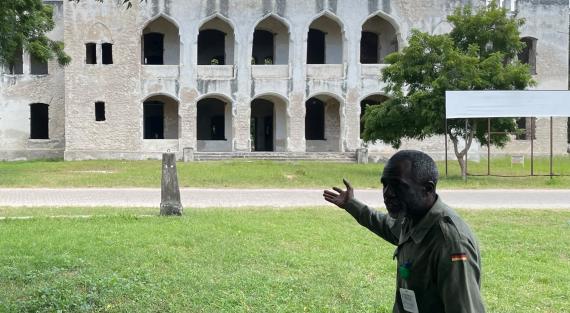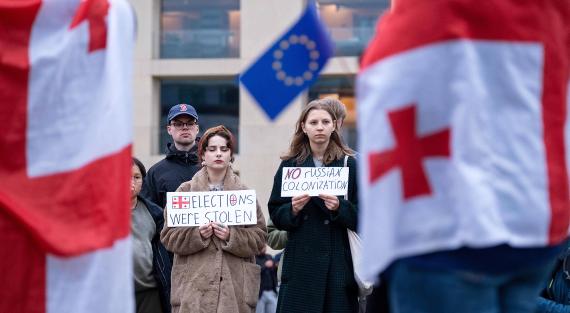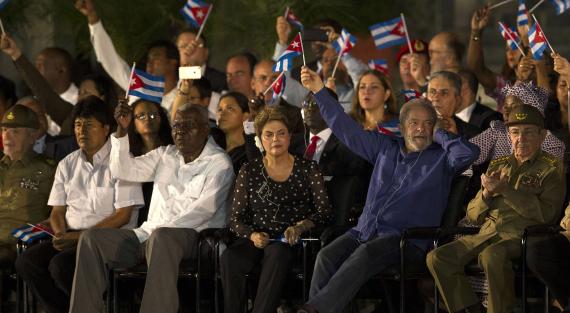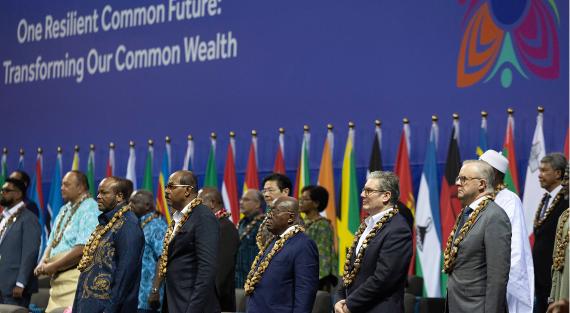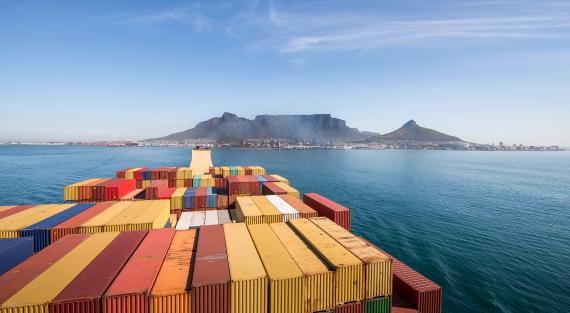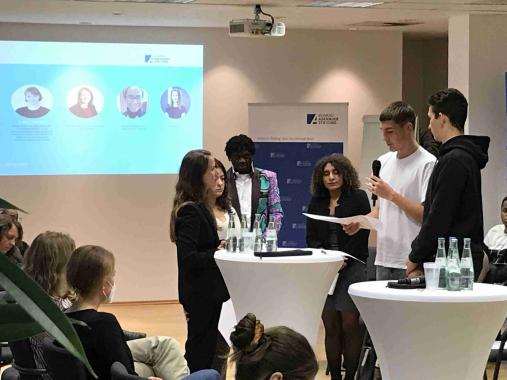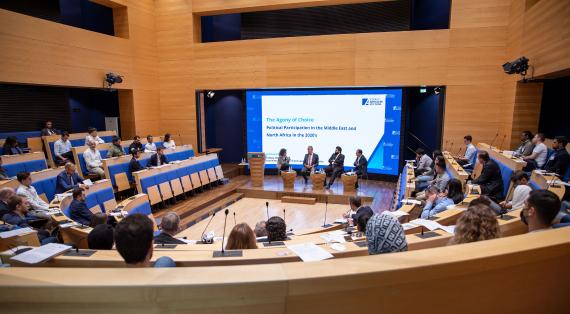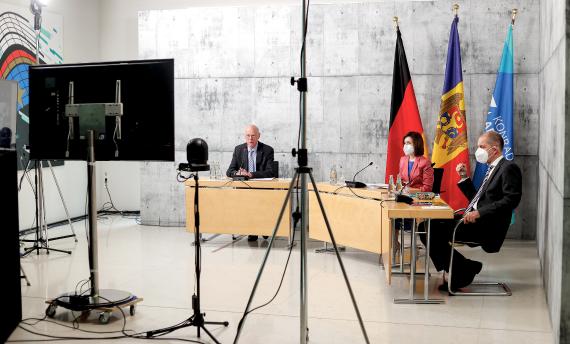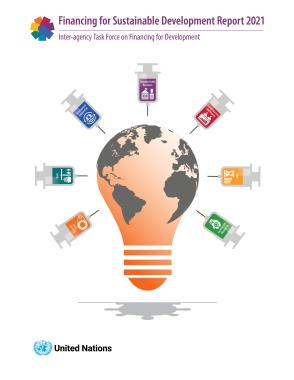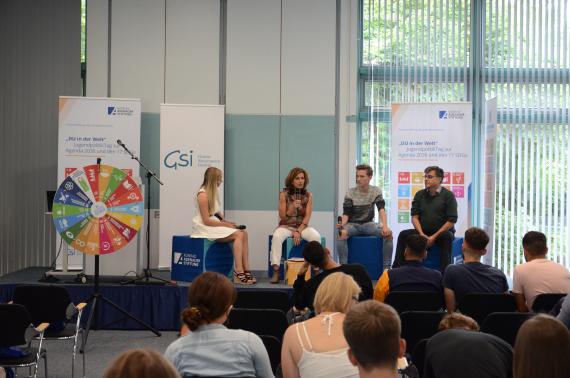Security in Germany and around the world depends not only on investments in defence capabilities, but equally on investments in global development.
At a glance
- Development policy is an integral component of Germany’s strategic foreign engagement and must be closely aligned with its foreign, security, and economic policies.
- We stand for an inclusive development policy that, on the one hand, takes into account German interests and geopolitical developments, and on the other hand, recognises the fight against extreme poverty and the creation of decent living conditions as essential responsibilities of a value-based development cooperation.
- Development policy is not an end in itself but a tool to foster self-reliance. This means that key actors in our partner countries are intentionally empowered to contribute to the social, ecological, economic, and thus sustainable development of their countries.
- As an internationally active political foundation, we have been implementing development projects in our partner countries for over 60 years — in close cooperation with local partners.
- In addition to strengthening political frameworks — including democracy, rule of law, and human rights — our objectives also encompass the advancement of economic development, security, climate action, and gender equality.
Content
1. Development policy is strategic, interest-driven, and values-based
2. Development policy is international cooperation
3. Development policy is self-empowerment
4. Development policy is firmly embedded in our work
5. Our offers and projects on the topic
6. Publications, events and media contributions on the topic
Development policy is strategic, interest-driven, and values-based
The international geopolitical environment has changed substantially. Today, developing and emerging countries have a wide range of cooperation partners to choose from. Germany must acknowledge this reality in its development policy and adopt a strategic and interest-driven approach accordingly. Commitment to the protection of “global public goods” such as health (e.g. pandemic prevention), security and climate is just as much a part of this as well-considered interlinkages with migration policy and foreign trade promotion. At the same time, in line with the Christian view of humanity, reducing extreme poverty, combating hunger and creating educational prospects in the economically least developed countries remain indispensable components of a value-based development cooperation. The orientation towards both values and interests can be summarised by the term "value-driven pragmatism”. The United Nations’ Sustainable Development Goals (SDGs) of the 2030 Agenda serve as central reference points for German development policy.
Development policy is international cooperation
Development policy can only be approached as a partnership, whether through bilateral relations with partner countries or cooperation at the multilateral level. Germany's role in strengthening rules- and values-based multilateralism is central to this. Together with like-minded partners, we can contribute to value-based development and, in doing so, offer an international counterweight in the systemic conflict with actors such as China or Russia. Cooperation and coordination with European partners are essential for a successful development policy.
Development policy is self-empowerment
Through development policy, we are committed to creating decent living conditions worldwide and promoting sustainable and self-determined development. The principle of helping people to help themselves is a central guiding motive in this effort. By providing tailored support, the aim is to empower political, economic and civil society actors to contribute to the sustainable social, economic and ecological development of their respective countries and regions. Against this backdrop, development policy also includes efforts to improve global economic frameworks for the benefit of developing countries, while promoting the rule of law and resilient institutions at the multilateral level.
Development policy is firmly anchored in our work
Since the 1960s, the Konrad-Adenauer-Stiftung has been committed to improving the political framework conditions in developing countries through its international development policy activities in order to promote democracy, the rule of law and respect for human rights. The advancement of gender equality, climate protection, and sustainable economic development also represent key objectives. Close cooperation with local partners, tailored to the respective context, is central to the Stiftung’s work.
Our offers and projects on the topic
International offices and programmes
The commitment to democracy, the rule of law, freedom, and the social market economy plays a significant role for the Konrad-Adenauer-Stiftung’s sustainable development policy. For this reason, we are active worldwide with our international offices, promoting democratic structures and thus helping relevant stakeholders empower themselves to contribute to a socially, economically and ecologically sustainable development.
Multinational Development Dialogue
The Multinational Development Dialogue (MNED) programme located in Brussels, New York and Washington D.C., is responsible for dialogue with the European Union, NATO and the United Nations in development policy, but also for the networking of partners and experts from the worldwide KAS network with relevant institutions. Furthermore, a project team based in Brussels and Berlin supports the offices of the Konrad-Adenauer-Stiftung in third countries when applying for EU projects.
Learn more about the Multinational Development Dialogue Brussels
Learn more about Multinational Development Dialogue New York
International Media Programme
A democracy only functions if freedom of the press and of expression are guaranteed. However, these basic conditions do not exist in many countries around the world. That is why our offices in Johannesburg, Singapore and Sofia support media in the respective region with accepting its political responsibility and with contributing towards the development of democracy and strengthening statutory framework conditions. This enables the emergence of an independent media landscape as well as establishing a basis for the free formation of opinions in politics and society.
International Rule of Law Programme
Since 1990, the Konrad-Adenauer-Stiftung has complemented its international projects for democracy promotion and political dialogue with the transnational Global Rule of Law Programme. Locations of the five regional programmes are in Bogotá for Latin America, Singapore for Asia, Nairobi Dakar for Sub-Saharan Africa, Bucharest for South-East Europe and Beirut for the Middle East/North Africa. Global activities concerning the rule of law are coordinated from Berlin.




